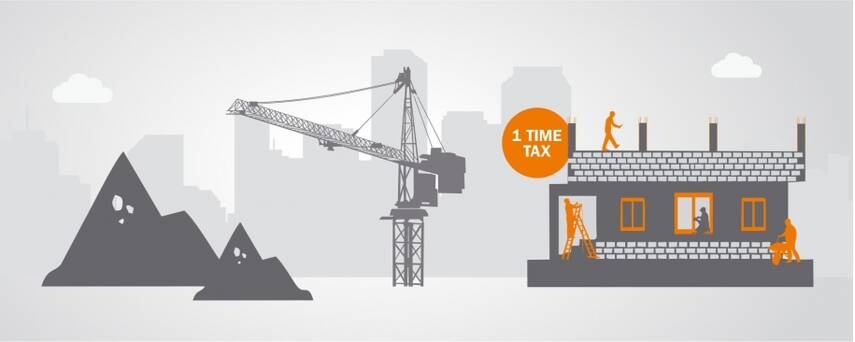Firstly, GST will reduce the multiplicity and double taxations that one has to pay especially during property transactions. It will subsume more than 16 major taxes, including real estate taxes, and levies into one single consolidated tax. But it might be a dampener for property buyers as the stamp duty on property is not subsumed in GST. Therefore, it can be assumed that ready-to-move-in houses will not be affected by GST, as buyers pay stamp duty to the government.
GST is going to be levied on every kind of “movable” property. Hence costing of construction materials might go down because of a lesser burden of tax on such inputs. But since the same property after the construction work is complete becomes “immovable” it would be considered out of the ambit of GST.
On the other hand, the sale of under-construction property would be considered under GST ambit. Again, if the GST rate for an under-construction property is higher than the existing cumulative taxes, then its price will naturally increase. But with the finance minister, Arun Jaitley's assurance the real estate gurus are hoping otherwise.
However, appropriate abatement should be provided for the value of land. Moreover, a clause in Model GST Law states that credit of GST would not be available for goods and services acquired for construction of immovable property. This is an ambiguous clause and might lead to litigations and denial of credits for the buyers. The activity of leasing of immovable property is expected to be qualified as a service under GST regime. But, whether the credit of GST would be available only after the procurement of goods and services is not yet clear. It all depends on whether the immovable property for commercial leasing would qualify into the section where credit would be available.
Definitely, real estate related sectors like cement, steel, IT and BFSI are going to be benefited in the long run because of rationalisation in tax related compliance and slated gains.
Above all, GST will bring much-needed transparency into the real estate sector because after the declaration of GST rates the buyer will have to pay one clear and uniform tax that would include everything. Thus the payment process would become simpler. And the customer wouldn’t mind paying higher rate rather than ambiguous ones.
But its direct impact on real estate in terms of taxation on developers and buyers can be clearly perceived only after the declaration of GST rate.







